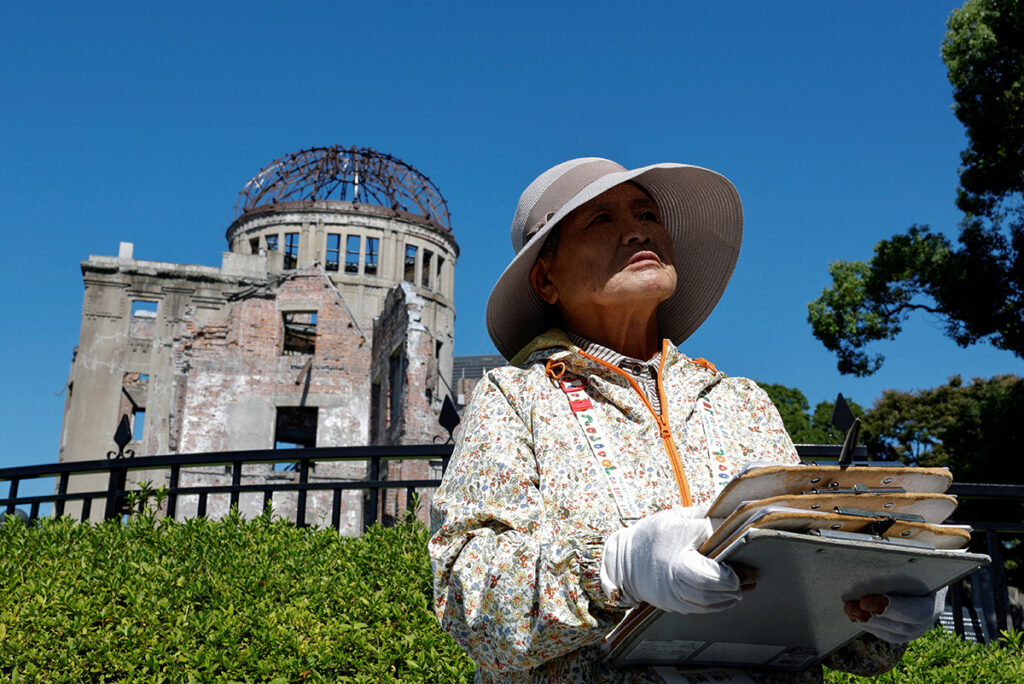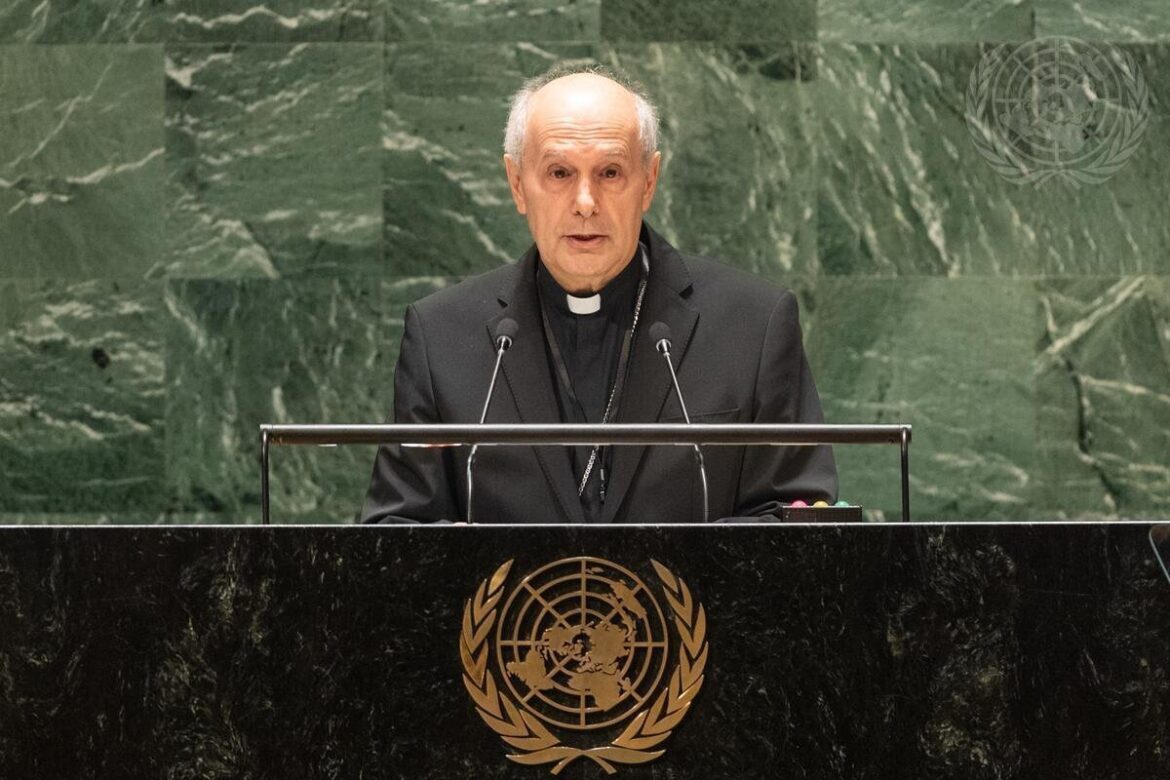(OSV News) — Amid a global arms race, ending the threat of nuclear war — and even the testing of nuclear weapons — is imperative, said the Holy See’s diplomat to the United Nations.
Archbishop Gabriele G. Caccia, the Holy See’s U.N. permanent observer, shared his thoughts in a statement he delivered Sept. 4 at U.N. headquarters in New York, during the General Assembly High-level Plenary Meeting to Commemorate and Promote the International Day Against Nuclear Tests, observed that same day.
“The pursuit of a world free of nuclear weapons is not only a matter of strategic and vital necessity, but also a profound moral responsibility,” Archbishop Caccia in his remarks.
He pointed to the introduction of nuclear weapons — first detonated by the U.S. in 1945 over the Japanese cities of Hiroshima and Nagasaki, killing an estimated 110,000 to 210,000 people, during World War II — as unveiling to the world “an unprecedented destructive force.”

“This event changed the course of history and cast a long shadow over humanity, unleashing grave consequences for both human life and creation,” Archbishop Caccia said in his statement.
“The devastating aftermath of this dramatic event led to the problematic assumption that peace and security could be maintained through the logic of nuclear deterrence — a notion that continues to challenge moral reasoning and the international conscience,” he said.
That challenge has intensified in recent years, with more than 120 conflicts now taking place throughout the world, according to the International Committee of the Red Cross.
Military spending has soared worldwide, with the global total reaching a record high of close to $2.5 trillion in 2024, up more than 7% from 2023 and averaging just under 2% of nations’ gross domestic product. The European Union, United Kingdom and Canada have accelerated defense investments, as the U.S. under the Trump administration has unsettled longstanding defense alliances.
Concerning trend
The Treaty on the Prohibition of Nuclear Weapons, adopted by the U.N. in 2017, serves as a legally binding instrument towards the total elimination of nuclear weapons. But while there are 94 state signatories and 73 states party to the treaty, neither the U.S. nor Russia, which together account for approximately 88% of the world’s nuclear weapons, have signed on.
That trend is “particularly concerning,” said Archbishop Caccia.
“Rather than advancing towards disarmament and a culture of peace, we are witnessing a resurgence of aggressive nuclear rhetoric, the development of increasingly destructive weapons and a significant rise in military expenditure,” he said, “often at the expense of investment in integral human development and the promotion of the common good.”
The very prospect of nuclear testing is problematic, he said, noting that since the first nuclear weapons test in 1945, more than 2,000 tests have been conducted “in the atmosphere, underground, beneath the oceans and on land.”
“These actions have affected everyone, particularly indigenous peoples, women, children, and the unborn,” he said. “The health and dignity of many continue to be affected in silence, and all too often without redress.”
Calling for shared responsibility
The archbishop stressed the Holy See’s call to reflect on “the urgent shared responsibility to ensure that the terrible experiences of the past are not repeated.”
He affirmed the Holy See’s support for the Comprehensive Nuclear-Test-Ban Treaty, which bans all nuclear test explosions, whether for military or civilian purposes, as well as the Treaty on the Prohibition of Nuclear Weapons.
“It is imperative that we move beyond a spirit of fear and resignation,” said Archbishop Caccia.
The archbishop quoted the exhortation of Pope Leo XIV in his June 18 general audience, saying, “We must never become accustomed to war. Indeed, the temptation to place our trust in powerful and sophisticated weapons must be firmly rejected.”
Gina Christian is a multimedia reporter for OSV News. Follow her on X @GinaJesseReina.




